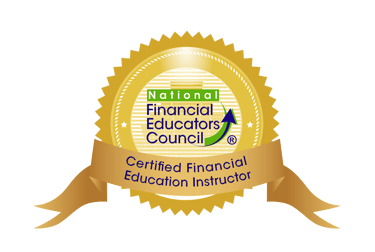From Fear to Freedom: A First-Time Budgeter's Journey
In this post, I share a deeply personal experience helping a close friend create his very first budget. What started with hesitation and fear of restriction turned into a powerful journey of self-awareness, discipline, and financial confidence. I walk you through how we tackled his bills, identified unnecessary expenses, and created a budget that reflects his lifestyle—not restricts it. I also reflect on the emotional side of money and how important it is to move at your own pace. If you've ever felt overwhelmed by the idea of budgeting, this post is for you. It's a reminder that financial freedom starts with grace, one step at a time.
Dynea Pope
7/25/20253 min read


Recently, I had the honor of supporting a dear friend as he created his very first budget. At first, he was nervous—his initial reaction to the word budget was restriction. As someone who enjoys monthly travel, experiences, clothes, shoes, and personal care, he couldn’t understand why saving was necessary when it’s “just him.”
His reaction isn’t uncommon. According to the National Financial Educators Council, money-related stress impacts 72% of Americans, and many people avoid budgeting altogether because it feels limiting or overwhelming. But budgeting isn’t about deprivation—it’s about awareness and choice.
Starting Where He Was: Awareness Without Shame
We started simply: by looking at his bills. And here’s something I’ve learned—many people who don’t budget often don’t know when their bills are due or how much they truly owe. As we reviewed his finances, we discovered he was overpaying for internet—nearly double what he should have been. We also found several unused subscriptions that were easily canceled.
By the end of our first session, we had clarity: what he owed, when his bills were due, and how we could spread his payments more evenly across his two monthly paychecks. We even planned to call a few companies to shift due dates and create balance in his cash flow.
He left that session feeling empowered, proud, and optimistic. And so did I. I love helping people become more self-aware and take ownership of their financial journey.
Understanding the Emotional Side of Money
But the next day, I forgot something very important: Money is emotional.
I excitedly texted him about our next step—creating savings goals. He didn’t respond right away. When he finally did, he said something that stayed with me:
"I honestly felt good about looking at the bills and understanding the due dates. That was enough for me. Now I'm feeling overwhelmed."
That moment reminded me that financial change is not just about numbers—it’s about beliefs, habits, and mindsets formed as early as age five. Changing them requires time, trust, and grace.
The Stages of Change: Where Are You?
My friend was going through what psychologists call the Stages of Change, a model used to understand how people make behavioral changes in areas like health and finances:
Precontemplation – Unaware there’s a need to change (e.g., “Why do I need to save?”).
Contemplation – Acknowledging the need but feeling uncertain (e.g., “Maybe I should budget…”).
Preparation – Gathering tools and information (e.g., “Let’s look at my bills.”).
Action – Actively making changes (e.g., canceling subscriptions, adjusting bill due dates).
Maintenance – Sustaining new habits over time.
My friend had just moved from Contemplation to Action—a huge leap. But I was already focused on the next stage. That’s when I reminded myself: it’s not my pace that matters. It’s his.
So I reassured him:
“You’re doing great. All the money is still yours—we're just giving it a plan. We can go at your pace. I’ll be here when you're ready.”
Progress, Not Perfection
Two weeks later, he reached out. We created his first formal budget. He asked lots of questions—ones he called “remedial,” but I saw them for what they were: brave, necessary, and honest.
One key lesson we discussed: Make a plan before spending.
For example, before a trip, consider these categories:
Entertainment
Food
Lodging
Transportation
Then, decide how much to spend in each area. At first, this felt restrictive to him, but I reframed it:
“You’re not giving up control—you’re claiming it. This is money you already spend. We’re just choosing how and when on purpose.”
He was receptive, and by the end of the session, he felt confident. We didn’t set specific savings goals yet—and that’s okay. He’s still processing a major shift in mindset. Change is not a straight line.
The Beauty of Financial Growth
If you’ve never budgeted before, you can do this too. Give yourself grace. Start by asking:
What do I spend money on each month?
What bills do I have?
When are they due?
What do I want my money to do for me?
And remember, awareness is the first step to empowerment.
I’m so proud of my friend—not just for making a budget, but for embracing a new version of himself. His journey is full of vulnerability, courage, self-awareness, and discipline. And it's just beginning.
At Moneynomics, we believe that financial freedom isn’t about restriction—it’s about agency.
And every step you take is worth celebrating.
Designed by Freepik
© 2024. All rights reserved.


Baltimore, MD 21236
Phone:(443)584-6723
Email: moneynomicsinfo@gmail.com


